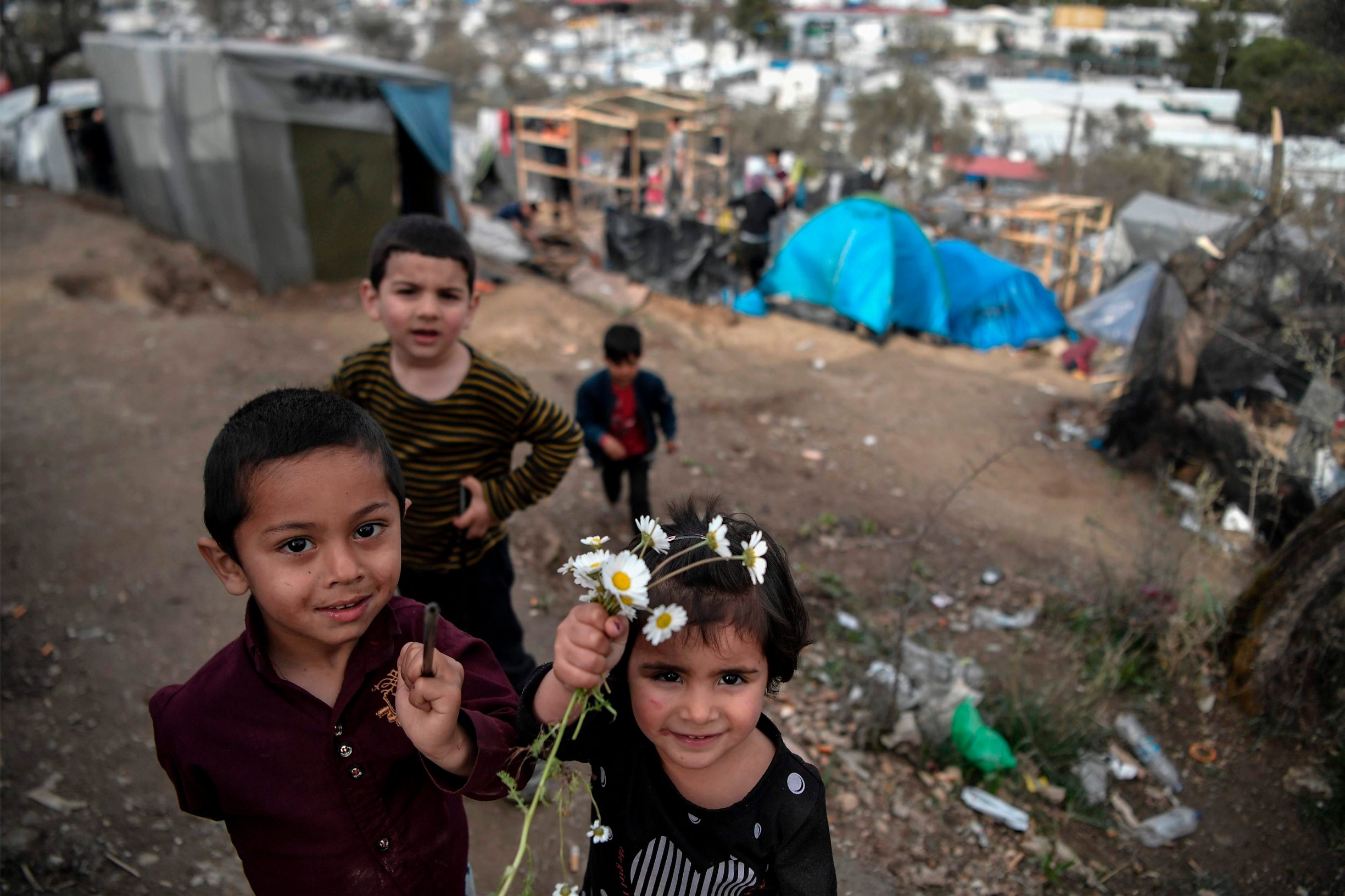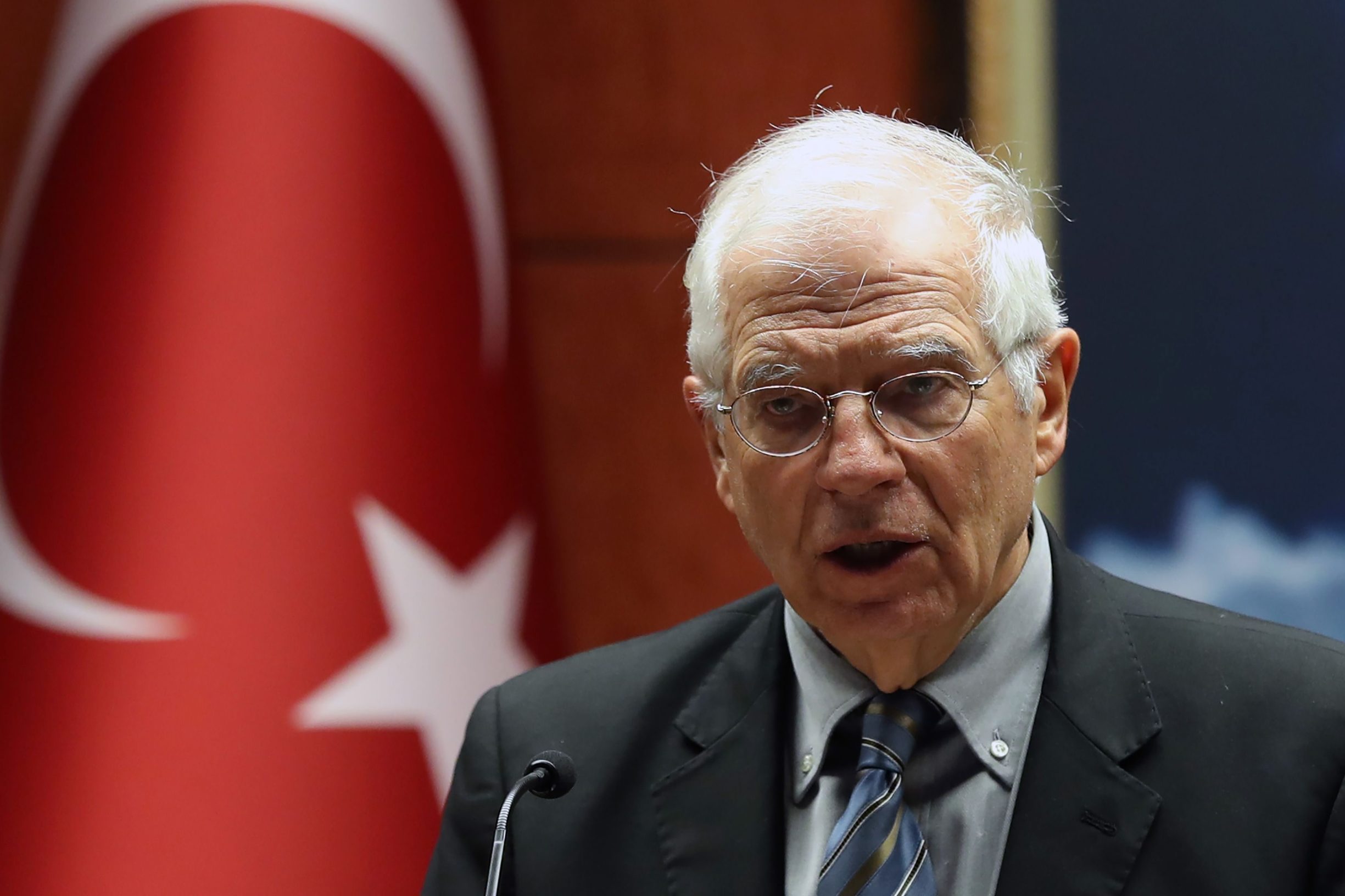
1. One of Commission's key priorities is to establish a geopolitical EU, and your portfolio is going to be crucial for that task. How can the EU be a strong geopolitical player without a common army or even the same interest?
The European Union needs to develop a common strategic culture. The European Union as a whole needs to be a geopolitical actor, Europe needs to develop a responsible appetite for power and learn to use the language of power.
Many believe that this can only be done through military power. But there are other ways of exercising power. We have to work more together and we have to develop a common understanding of the threats that we share, a common culture of how we understand the world. We have to build a strategic vision of the world, based on how we see the future and the challenges ahead of us.
2. You commented on the new MFF proposal for defence is not that satisfying. If you want to be a player you have to pay a price, you said. You also said that the EU needs to have ''appetite for power'', meaning it should also be more present in the world conflicts. Does this mean that the EU will intervene more militarily in some conflicts? Should the EU develop its sovereignty in military power?
The European Union needs to step up and take greater responsibility for its security. We have multiple crises burning in our neighbourhood and beyond. This requires joint action. If we do not act, others will and not always in a way that corresponds to our interests. If we want diplomacy to succeed, it must be backed by action. We need both: the will and the means. Defence is key in this regard. But the EU is not a military union, and defence is a national competence of EU member states. At the same time, over the past years, we have advanced in making sure that Member States can make the EU a credible, more reliable, more active security provider in its neighbourhood and in the world.
Stability and security are preconditions for prosperity. I was just a few days ago in Africa, in Ethiopia and in Sudan, and I raised this very clearly: having the right training and the right equipment are determining elements when it comes to stability.
3. To what extent can the EU cooperate with controversial yet powerful leaders like Putin and Erdogan, especially after the latter has sent 100.000 migrants on the EU border as a threat?
The European Union bases its work and actions on cooperation and dialogue with all relevant actors. This is the only realistic way of working, considering the many global and interlinked crises we are facing and on which we must act and react. For example, on the unfolding situation in Syria. We gather, as EU Foreign Ministers, [today/tomorrow] in Zagreb, with the great help of the Croatian Presidency of the Council of the European Union, and we will discuss the situation and find avenues for common action.
Over the past days, I had frank discussions with relevant players, including the Turkish authorities during my trip to Ankara earlier this week or the Foreign Minister of Russia. My message is clear: we need an immediate de-escalation and permanent ceasefire. Human suffering has to stop. And the EU needs to ensure that our collective action has the highest possible impact if we want to effectively address the crisis.
“We have a common interest and that is to end the conflict in Syria. Only in this way will we be able to bring to an end the suffering of the civilian population and contribute to address the most significant challenges Turkey is currently facing. Increased pressure at EU-Turkey border and unilateral actions will not provide answers”, I said to Turkish interlocutors.
4. Is Europe ready for another migrant wave which threatens after the recent escalation of the crisis in Syria?
The EU – Turkey Statement needs to be upheld. We – at all levels in the European Union – are engaged in supporting Greece and Bulgaria in addressing the situation.
I called for an extraordinary Foreign Affairs Council, in Zagreb to discuss the latest developments with foreign ministers of the EU member states and see what could be done to tackle the causes of the current situation: the further destabilisation of Syria and the unbearable humanitarian situation in and around Idlib. At the same time, the ministers of interior of the EU member states are meeting on Wednesday to shape up the response to the increasing migratory pressure on the outside EU borders.
5. How can the EU position itself among the geopolitical giants on the global scene such as Russia, China etc.? Are we late in the game?
The European Union is not late to any game. But I said before, we have to develop an appetite for power. We should be able to act, not just talk. This means we have to be prepared to use our regulatory leadership, our financial clout, the appeal of our single market, of our consumer society, expand our trade instruments and use – or not - our considerable development assistance. It is a combination that no other power has. If we are serious about the European Union being a geostrategic or geopolitical actor in an increasingly hostile, increasingly polarised world, we need to play the game of the world in which we live in; not the one we would like to be living in.
6. What will be the biggest challenges for the EU defence policy in the future, and during the new Commission’s term? Will it be more hybrid and cyber threats or wars and visible conflicts?
Defence is clearly a ‘growth area’ for the European Union. To succeed, we must all – EU institutions and Member States alike – strive for the same strategic goal: a more capable Europe in the field of defence. The role of the High Representative, being also Vice President of the Commission and Head of the European Defence Agency was created precisely to ensure coherence and a common direction for European defence. Cyber and hybrid threats are definitely one of the main challenges we are and will continue to be facing in the future. We need to develop a common view of the new threats that we face and a common strategy to respond to them.
7. What is the future of the Iran nuclear deal? Does the EU have any Plan B for Tehran that goes beyond the Agreement?
The Iran nuclear deal, or JCPOA, is a key multilateral achievement and cornerstone of the global non-proliferation architecture. It contributes to regional and global security. It tooks years of negotiations and we know there is no alternative to it. No other international deal could guarantee that the same vital security objectives are met. The European Union, and the other participants to the deal – including Iran, reiterated most recently on 26 February that they are committed to preserve the agreement and to find a diplomatic way forward. As the Coordinator of the Joint Commission of the JCPOA, I have the role to steer efforts in that direction. I will continue working with the remaining participants in support of the agreement and its full and effective implementation by all. At the same time, we have made clear that Iran needs to go back to full compliance with the JCPOA without delay. But if we want the Iran nuclear deal to survive, we need to ensure that Iran benefits from it, if it returns to full compliance.
8. Are you worried about the US interference in Kosovo-Serbia relations? Is the EU losing its influence in the region, and who is benefiting from Washington's mediation?
As I indicated during my visit in January to Kosovo and Serbia, the Western Balkans area a priority for the European Union and for me personally. I am committed to support advancing in the EU-facilitated Dialogue, in my role as facilitator. To help enhance my engagement and efforts, I decided to appoint a Special Representative for the Dialogue and the Western Balkans.
Any engagement in support of the EU facilitated Dialogue by Member States as well as by our international partners, is of course welcomed. We work with all partners, the situation continues to require the efforts of all who want to achieve the same goal, that is, the prosperity of the people in the countries concerned, as well as their European perspective.
9. You just terminated your visit in Africa among which you visited the camp of displaced people in Darfur. How is the situation there? What will be the plan of EU during the new Commission term to prevent the extension of terrorism in the Sahel region?
The European Union has been a partner of Sudan since 1994. The situation has improved quite a lot since then. But the European Union needs to continue to provide services to the people living in camps in Darfur, or other places where conflicts have left people with – if not nothing, not much. You mention the Sahel region, which is of course is a priority for the European Union and for me personally. At the end of the month, we will have a Summit convened by President of the Council, Charles Michel to address the situation in the Sahel.
But more generally, let me stress that this Commission is taking its partnership with Africa very seriously. The two Presidents – of the European Commission and of the European Council – travelled to Africa in the first weeks of their mandate. Next week, we will adopt a proposal for a basis of a new strategy with Africa. We want a new partnership with our African partners, and this will be a priority for this year, 2020, with a culminating date: October 2020 for the next Summit between the European Union and the African Union.
10. What is your assessment of the Croatian EU presidency?
This week, the eyes of Europe are on Zagreb for very important meetings of defence ministers and foreign ministers, and actually even an extraordinary meeting of foreign ministers this Friday. We convene to discuss the situation in Syria and its implications on relations with Turkey. As holding the rotating Presidency of the EU, Croatia has been at the forefront of the EU’s reaction on recent developments, providing political guidance for instance on aspects related to home affairs, as well as guaranteeing seamless cooperation and organisation for the meetings we will have [today and tomorrow] with EU foreign ministers. I thank the Presidency’s team, especially as I asked them to organise an extraordinary meeting for the Foreign Affairs Council in no less than a week!
I remember the first Presidency of the Council that Spain held after its accession to the European Union, in the first half of 1989. It was a moment of great pride for the country, to lead Europe, to organise many events, to host foreign dignitaries, to broker deals, and to represent the European Community on the international scene. Holding the rotating Presidency offers each Member State the opportunity to show to Europe and the world its capacities, and European values. I have no doubt than by the end of June 2020, Europe will see Croatia with even more admiring eyes than it did before January, if I can only judge by the excellent organisation and cooperation of the team I had the pleasure to work with.








Komentari
0